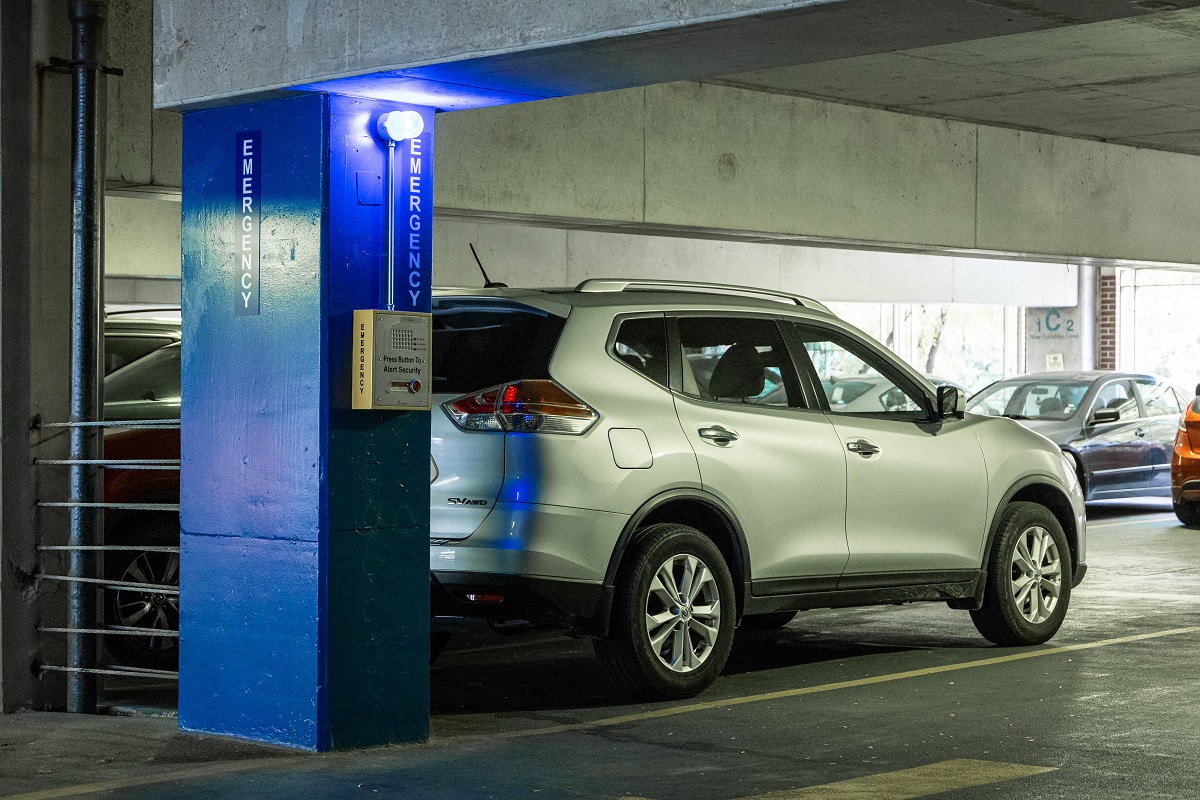 (Photo by Jeff Carrion/DePaul University)
(Photo by Jeff Carrion/DePaul University)Lately, enhancing campus safety is on everyone's mind, and DePaul has taken a number of steps since spring 2023 to increase the security and safety of students, faculty, staff and visitors. Before fall quarter began, DePaul University leaders identified building safety as a top priority, and just last week, we implemented
building access and ID changes.
Two important actions formed a strong foundation for campus safety enhancements: DePaul Vice President of Facility Operations Rich Wiltse and Director of Public Safety Robert Wachowski commissioned a physical and technical security assessment and a college cohort campus safety benchmarking survey. The findings of the assessment and survey have now been delivered.
These findings help us better understand what is needed to bolster our building security: Where are we most effective, and where are the opportunities to change, add or expand safety measures to better protect students, faculty and staff?
A Formal Assessment to Uncover Answers
DePaul engaged
Jensen Hughes, a global leader in security and risk management consulting, to visit our Lincoln Park and Loop campuses in July 2023. They conducted an on-site physical and technical security assessment, which included evaluating our buildings and parking areas, as well as technologies such as intrusion detection systems, emergency call boxes and cameras. They also conducted in-person interviews with DePaul leaders and administrators.
Key Findings and Recommendations to Continue Improving Safety and Security at DePaul
In their September report, Jensen Hughes indicated DePaul University has a strong security foundation that serves students, faculty and staff — one we will continue to bolster. Among their key findings, our strengths include:
- DePaul has a robust video system that provides substantial coverage of each campus location.
- Emergency call boxes and panic alarms are abundantly placed to support quick and reliable contact with security in an emergency.
- Public Safety dispatch centers are properly structured as centralized locations to provide oversight of security and safety systems, offering a framework to support expanding security technologies.
What's Next?
The report recommended three areas for DePaul to focus on:
- Continue building and leveraging relationships with campus partners and local law enforcement to effectively react to crimes and provide ample resources and support to those in need.
- Modify some policies and procedures.
- Explore the recommended physical environment and staffing/shift enhancements.
- Enhancing Public Safety Office operations, such as increasing patrols in parking areas, adding training records for officers, and developing policies and procedures to guide responses to alarms.
Acknowledging DePaul University faces unique challenges due to the location of its two campuses in the city of Chicago, the report concluded DePaul leadership has begun deploying many practices and approaches to mitigate these challenges.
An Additional Assessment: A Campus “State of Openness" Benchmarking Report
While DePaul is unique in culture, community and education, we share some safety and security concerns with other college campuses across the country. Through Jensen Hughes, DePaul surveyed universities to understand their approach to building security during normal business hours. Ten universities completed the survey: five Big East and five non-Big East schools from the greater Chicagoland area. Findings include:
- The top three security concerns are aggravated crimes against people, an active assailant, and other crimes against people.
- When colleges consider restricting access to buildings, the top reasons are university faculty or staff concerns related to security and safety, parent concerns related to security and safety, university administration concerns related to security and safety and student concerns about safety.
- The top three buildings universities are most likely to consider restricting access to are administrative buildings, libraries, and academic buildings.
- Most buildings on campus are open to the public during normal business hours.
- Just over half the respondents indicated that within the next three years, they are considering further restricting access to campus buildings.
As a designated focus area of
Designing DePaul, our framework for becoming a leader in higher education, the
Safety and Security initiative will continue to drive us throughout the academic year to consider what more we can do to enhance our community's safety. Jensen Hughes' findings and recommendations will support future decisions about increased safety and security on our campuses.
To stay current on Designing DePaul's Safety and Security focus and progress, please visit the